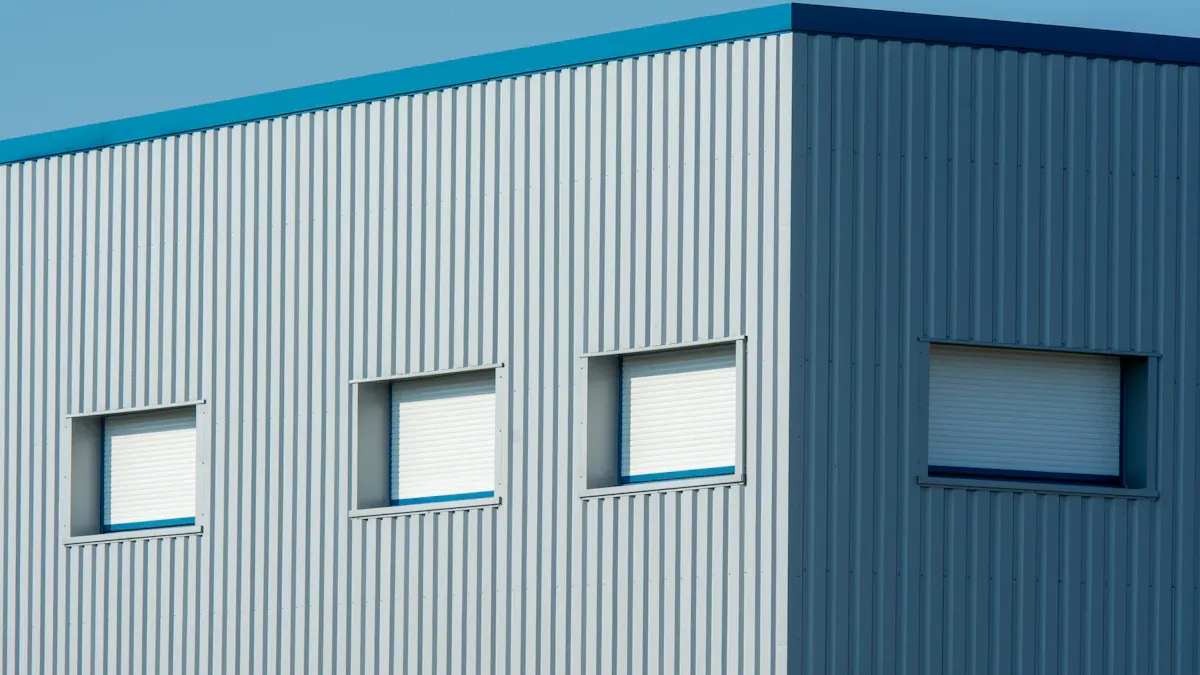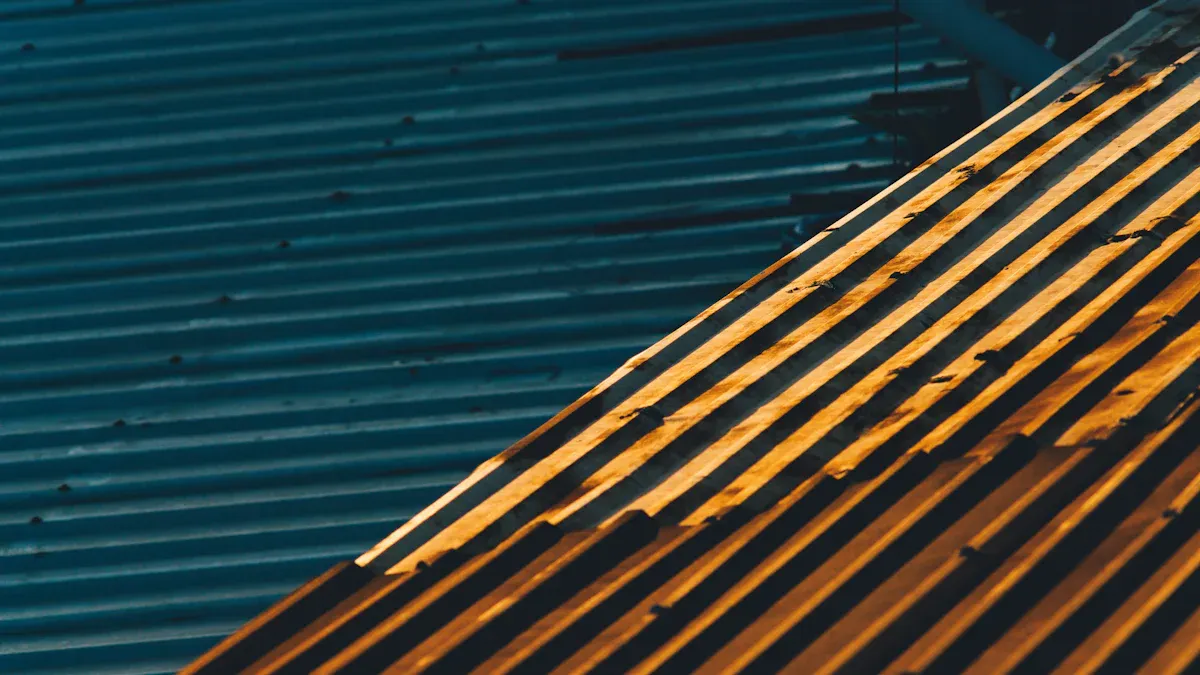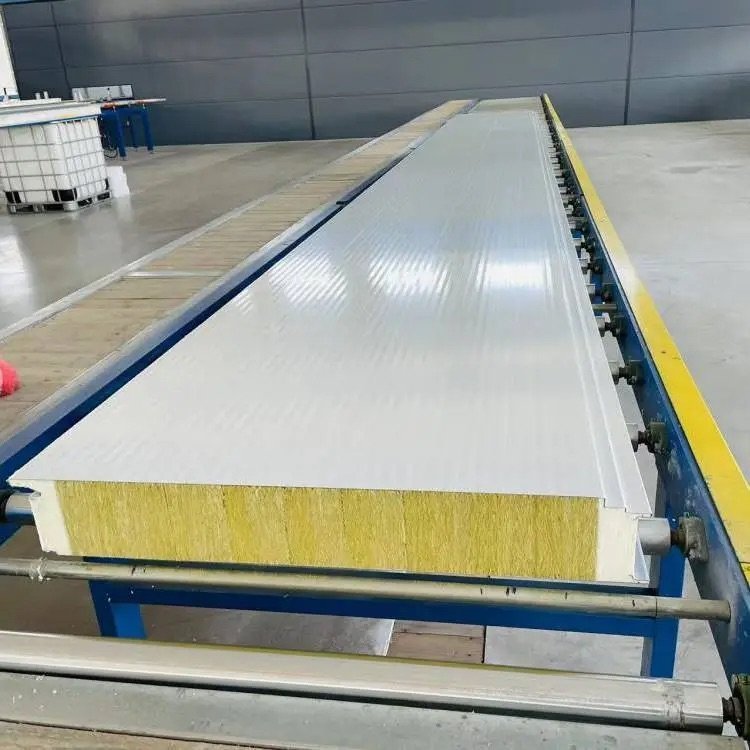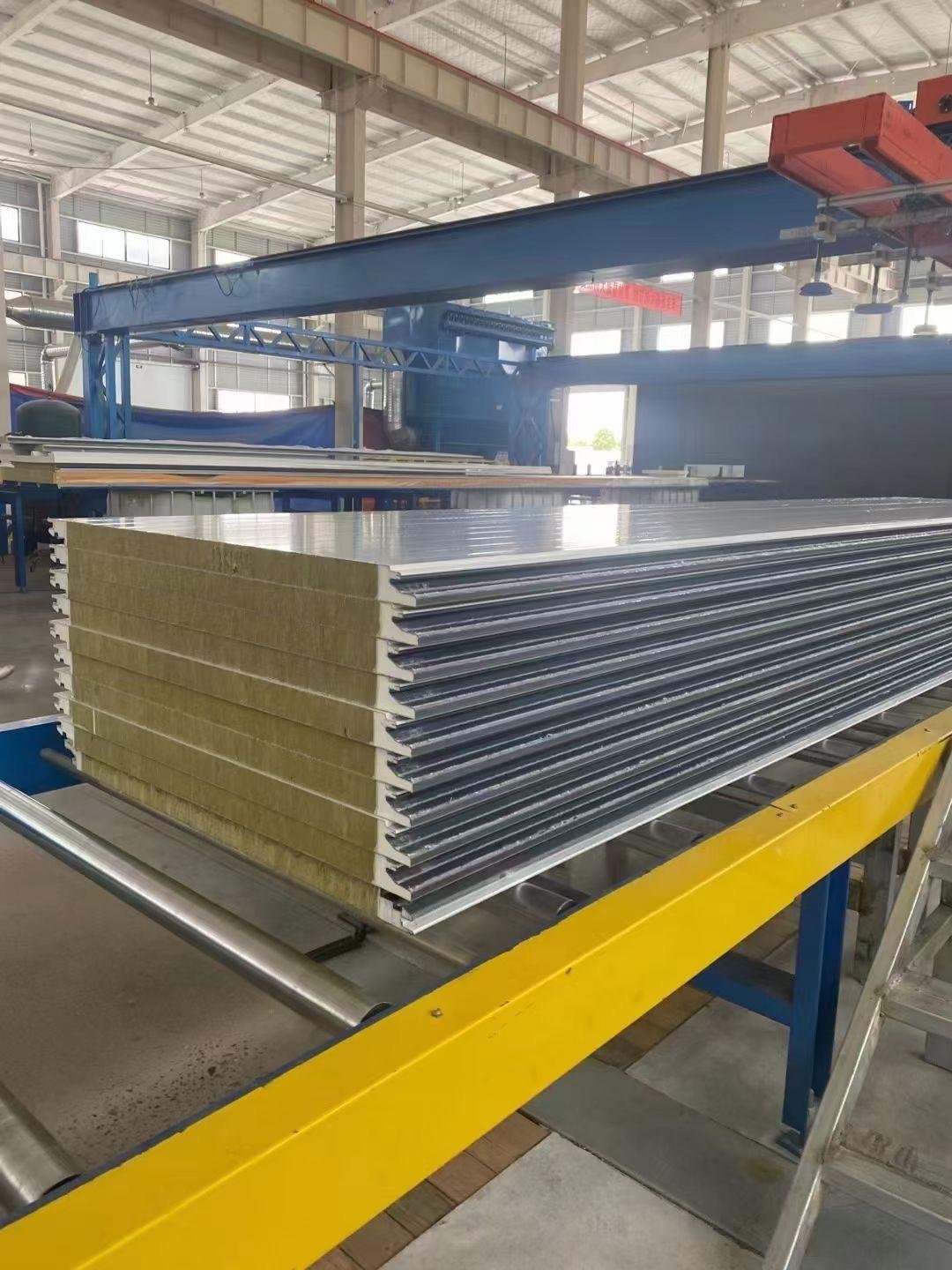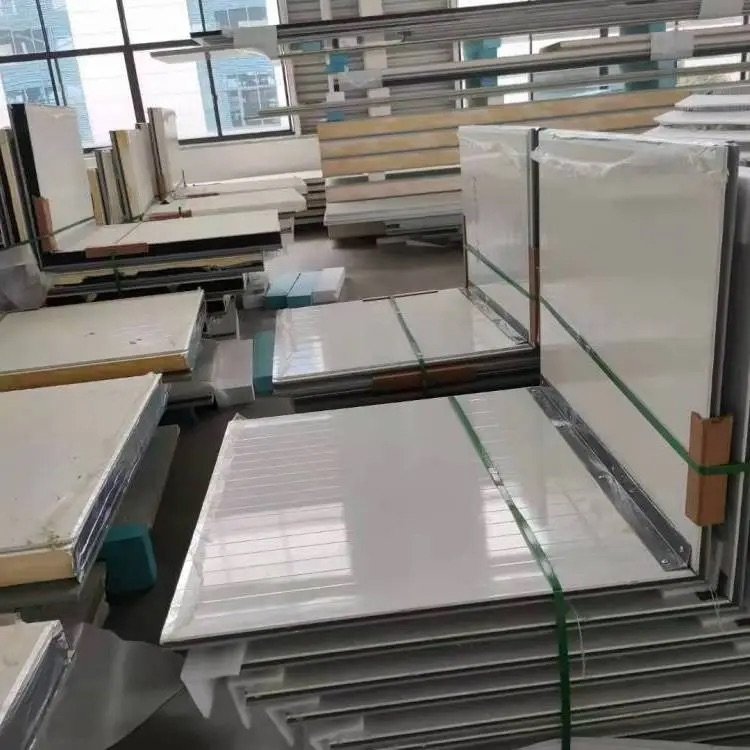
Choosing the right sandwich panel is crucial for your project. When you choose the right sandwich panel, you can significantly save energy, particularly in cold storage areas. Thicker panels help maintain internal temperatures, reducing energy expenses. Opting for materials that resist rust ensures the panels are durable and require minimal maintenance. To achieve optimal results, always evaluate material quality, insulation properties, and compliance with building regulations. Selecting panels tailored to your project’s specific needs guarantees longevity and value.
Key Takeaways
Think about what your project needs. Decide how it will be used, like for factories or cold storage, to pick the right sandwich panel.
Look at how well it insulates. Panels with higher R-values keep spaces warmer or cooler, save energy, and make them comfy.
Pick strong materials. Panels that don’t rust last longer and need less fixing, which saves money later.
Follow local building rules. Make sure your panels meet the rules to avoid fines or delays.
Compare costs now and later. Spending more on good panels can lower energy and repair costs over time.
How to Choose the Right Sandwich Panel for Your Project
Know Your Project Needs
Type of Use (e.g., factories, homes, cold storage)
First, figure out how your project will use the panels. Factories need strong panels that can handle heavy loads. Homes might need panels that look nice and block noise. For cold storage, focus on panels that keep heat out and save energy. Good cold storage panels help control temperature and lower energy bills. Picking the right panel for your project ensures it works well.
Weather and Climate
Think about the weather where the panels will go. In very hot or cold places, use panels with good insulation (high R-value). In wet or coastal areas, choose panels that don’t rust. By considering these factors, your panels will last longer and work better.
Check Core Material Choices
Polyurethane (PU) Core
PU cores keep heat in or out and are light. They work great for saving energy in cold storage or refrigerated spaces. PU cores are strong and resist water, making them dependable.
Mineral Wool Core
Mineral wool cores are fireproof and block noise well. These are best for factories or offices where safety and quiet are important. They also handle heat well.
Expanded Polystyrene (EPS) Core
EPS cores are cheap and insulate against heat. They are light and simple to install, so they’re common in homes and offices. Make sure EPS cores meet fire safety rules for your project.
Honeycomb Sandwich Panel Core
Honeycomb panels are strong but not heavy. Their design helps them hold weight while staying light. These panels are flexible and used in planes, cars, and buildings. They also insulate against heat and noise, making them useful for many projects.
Think About Panel Thickness and Strength
Weight Support
The thickness and type of panel affect how much weight it holds. Thicker panels with strong cores, like honeycomb or mineral wool, carry more weight. Check your project’s needs to pick the right panel.
Damage Resistance
Panels in tough areas need to resist damage. Honeycomb panels are great at this because of their design. Strong panels last longer and cost less to fix over time.
Insulation and Climate Considerations

Keeping Heat In or Out
R-Value and Best Fit for Hot or Cold Areas
Check the R-value of panels to see how well they block heat. A higher R-value means better insulation. In hot places, high R-value panels keep buildings cool by stopping heat. In cold areas, they trap warmth, cutting heating costs. Picking panels with the right R-value saves energy and keeps your building comfy all year.
Panels for Cold Storage
For cold storage, use panels made for freezing spaces. These panels keep the cold inside and stop heat from entering. They save energy and keep food or medicine fresh. Their strong insulation lowers energy bills and protects stored items.
Blocking Noise and Fire Protection
Reducing Noise for Homes or Factories
If your project is noisy, like in cities or factories, pick soundproof panels. Mineral wool panels are great at blocking noise. For homes, they make spaces quieter and more relaxing. The right panels create a peaceful place for work or living.
Fire-Safe Panels for Protection
Fire safety is very important for buildings. Choose panels that resist fire and follow safety rules. Mineral wool panels slow fire spread, giving people time to leave safely. Always check local rules to make sure your panels are safe to use.
Panel Coating and Durability

Surface Material Selection
Steel and Aluminum Coatings
The outer material of sandwich panels is very important. Steel and aluminum are common choices because they are strong. Steel coatings are tough and great for factories or heavy use. Aluminum coatings are light and do not rust easily. Pick the coating that fits your project’s needs. For example, aluminum is good in wet areas like near the ocean. Steel works better for projects needing extra strength.
Anti-Corrosion and Weather Resistance
Panels in bad weather need protection from rust. Coatings that stop rust help panels last longer. This is especially useful in places with lots of rain or moisture. Choosing rust-proof panels lowers damage risks and makes them last. Always check if the coating can handle tough weather before buying.
Longevity and Maintenance
Durability Over Time
Strong panels last longer and handle wear and tear well. Steel and aluminum coatings protect panels from damage and weather. Think about how long the panels will last for your project. Durable panels save money by needing fewer replacements over time.
Maintenance Requirements
Taking care of panels keeps them working well. Panels with good coatings need less upkeep, saving money. Cleaning and checking them often helps find problems early. Moisture-resistant panels are easier to care for in wet places. Follow care instructions to keep panels looking and working great for years.
Compliance and Certifications for Building Projects
Local Building Codes and Regulations
Permits and Approvals
Check local building rules before starting your project. These rules make sure your building is safe and strong. Ignoring them can cause fines or stop your work. Visit your town’s office or website to learn the rules.
You might need permits to install sandwich panels. Permits prove your project follows zoning and building laws. For example, cold storage panels often need special permits for insulation. Send all papers early to avoid delays. Keep approved permits at the site during construction.
Industry Standards and Certifications
ISO, ASTM, and Environmental Certifications
Standards help you pick safe and strong panels. Look for panels approved by groups like ISO or ASTM. These groups check if panels meet global safety and quality rules.
Eco-friendly certifications are also important. They show panels save energy and help the planet. Green-certified panels lower energy use in buildings. This is great for projects focused on sustainability. Always check certifications to ensure panels last long and meet industry rules.
Balancing Cost and Long-Term Value
Upfront Costs vs. Long-Term Savings
Material and Installation Costs
Think about both material and installation costs when picking panels. Strong materials like steel or aluminum cost more at first. But they last longer and work better over time. Lightweight panels, like expanded polystyrene, are cheaper to move and install. Choose materials that fit your project and budget. For example, cold storage panels need special insulation. These cost more upfront but save energy later.
Energy Savings and Maintenance Costs
Energy-saving panels help lower bills over time. Panels with high R-values keep buildings warm or cool. This is useful in places with extreme weather or cold storage needs. Durable panels with rust-proof coatings need less fixing. This saves money on repairs. Spending more on good panels now can cut future costs.
Cost-Effective Options Without Compromising Quality
You can find affordable panels that still work well. Pick panels that meet safety and quality rules. Compare similar options and choose ones that fit your budget. Expanded polystyrene panels are cheap and insulate homes well. But for fire safety, mineral wool panels are better, even if they cost more. Focus on long-term benefits instead of short-term savings for the best results.
Picking the right sandwich panel means checking materials, insulation, strength, rules, and price. These factors help your building work well and stay safe. For example, panels with good insulation, like PIR cores, save energy. Fire-safe panels, like rock wool ones, keep buildings safer. Always think about things like snow weight and water leaks to fit your project’s location.
Don’t just look at the starting price. Better panels might cost more at first but save money later. They last longer and cut energy bills. Talking to experts helps you choose panels that balance quality, performance, and cost wisely.
FAQ
What is the best sandwich panel for cold storage projects?
For cold storage, pick panels with a PU core. These panels keep temperatures low and save energy. Their high R-value traps cold air, cutting energy bills. Make sure the panels match your project’s insulation needs.
How do I ensure my sandwich panels meet fire safety standards?
Choose panels with a mineral wool core for fire safety. These panels resist fire and slow it down. Look for certifications like ISO or ASTM to ensure safety. Always check local building rules for extra requirements.
Can sandwich panels reduce noise in residential areas?
Yes, panels with mineral wool cores block noise well. They are perfect for homes near loud roads or busy places. These panels make living spaces quieter and more peaceful.
How do I maintain sandwich panels in coastal areas?
Use aluminum-coated panels for coastal projects. Aluminum resists rust from salt and moisture. Clean the panels often and check for damage to keep them lasting longer.
Are thicker panels always better for my project?
Not always. Thicker panels insulate better but may not fit all needs. Check your project’s strength and insulation needs first. Lightweight panels like EPS work well for walls that don’t carry weight.

